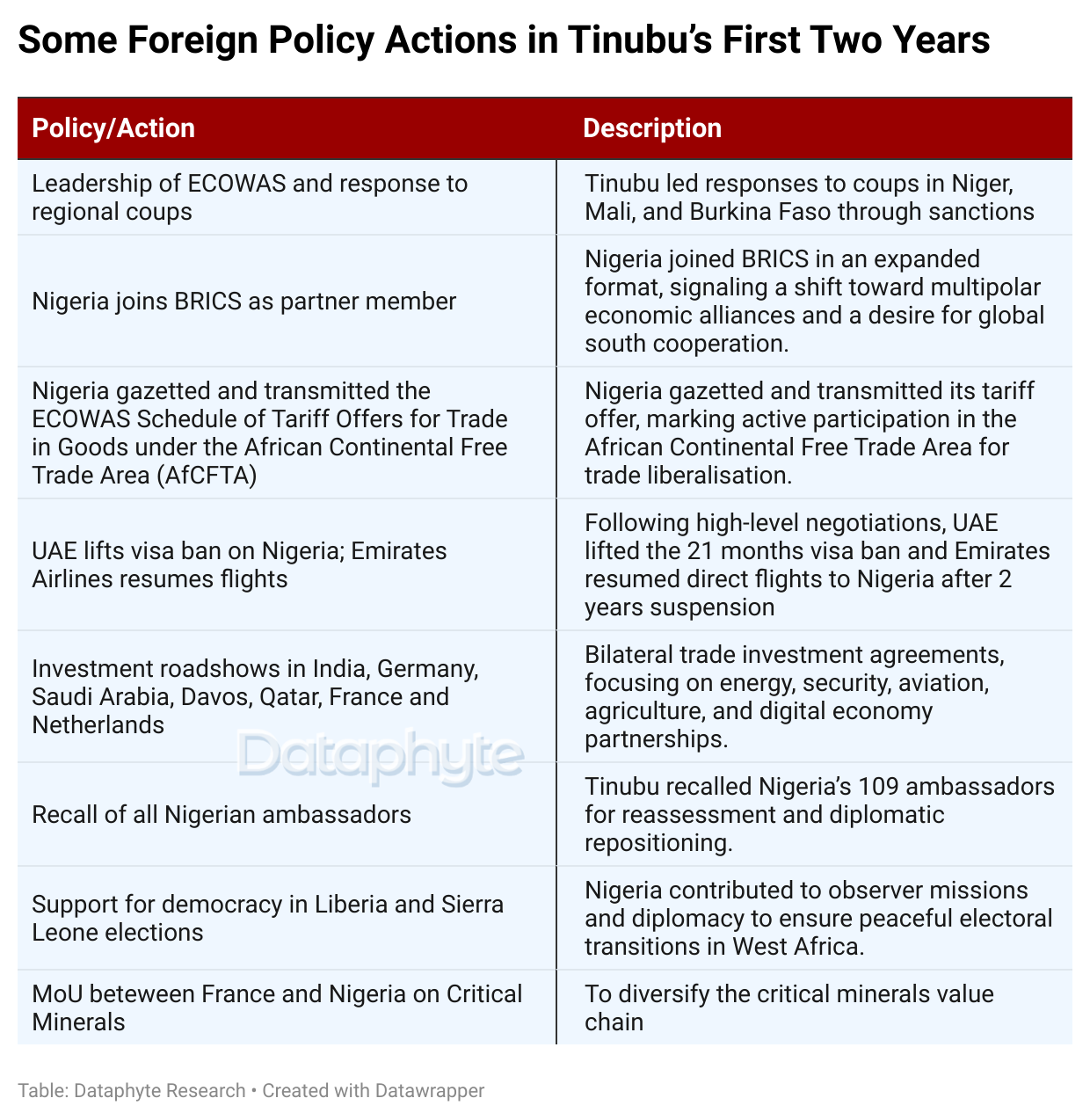Tinubu at Mid-Term: Foreign Policies, Bold Ambitions, and Recalibration
Since assuming office in May 2023, President Bola Ahmed Tinubu has pursued a more assertive and visibly strategic foreign policy agenda. Anchored on his “Renewed Hope Agenda” and the “4Ds Diplomacy Doctrine” — Development, Democracy, Demography, and Diaspora — his administration has attempted to reposition Nigeria on both regional and global stages.
An analysis of Nigeria’s foreign engagements over President Tinubu’s first two years reveals a presidency seeking to balance domestic economic pressures with international opportunities. The administration’s diplomatic efforts have been geared toward reinforcing Nigeria’s regional leadership, attracting foreign investment, promoting democratic ideals, and leveraging Nigeria’s population and diaspora for mutual benefit.
Recalibrating Nigeria’s Regional and Global Posture
President Tinubu’s foreign policy has drawn mixed reviews; his leadership of the Economic Community of West African States (ECOWAS) in the early days of his administration reaffirms the country as a key player in advancing continental political stability.
However, the wave of military coups in the West Africa region such as in Mali, Niger, and Burkina Faso, their subsequent withdrawal from ECOWAS have cast a shadow over Nigeria’s regional diplomatic influence, raising critical questions about the effectiveness of its regional leadership.
At the global level, President Tinubu has taken on the role of Nigeria’s chief economic diplomat. His participation in strategic multilateral and bilateral forums, including the G20 Compact with Africa Economic Conference in Berlin, the Nigeria-Netherlands Business and Investment Forum in The Hague, and the Nigeria-India Presidential Roundtable in New Delhi, signals a proactive effort to attract investment and reposition Nigeria in international markets.
Explore Our Publications
We release in-depth research publications and publish compelling data-driven reports on a wide range of topics.





